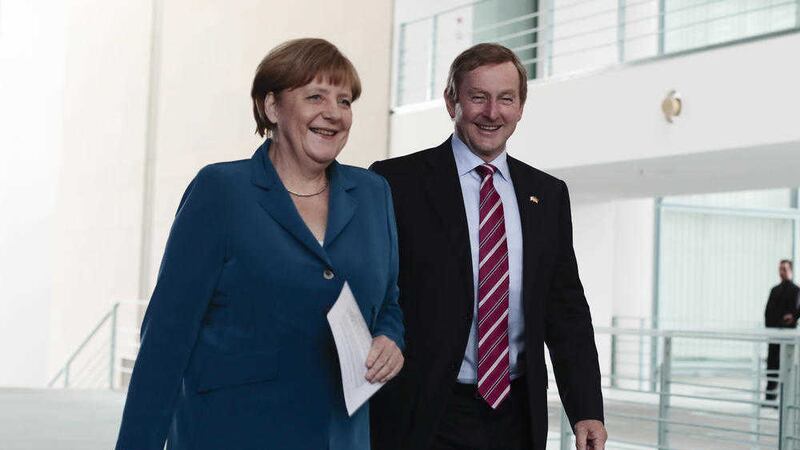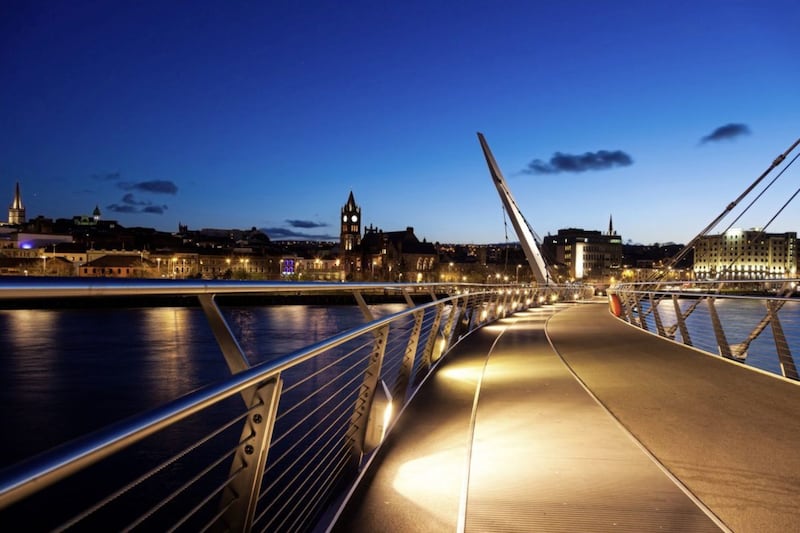ITALY'S foreign affairs minister has warned of the "dangerous consequence" of imposing new controls along the Irish border following the UK's decision to leave the European Union.
Speaking after talks with the Republic's foreign affairs minister in Dublin on Tuesday, Paolo Gentiloni cautioned against any moves to tighten security at the border.
"We do hope and are confident that the British referendum will not have as a consequence to raise new frontiers, new barriers, new borders in Ireland," he said.
"This would be a really very, very negative and dangerous consequence of the referendum, and I am confident that together we can avoid this kind of consequence."
Incoming prime minister Theresa May said during the EU referendum debate it was "inconceivable" that there would not be any changes to border arrangements in the event of a Brexit.
But Mr Gentiloni said the imminent "redefinition" of the relationships between Britain and the EU should not impact on a pre-existing agreement allowing free travel between the Republic and the UK.
The Common Travel Area deal has been in effect since the 1920s.
"I think it can be absolutely maintained, but it is an issue between Ireland and the UK - it is not an EU issue," said Mr Gentiloni, adding: "It is a concern of all of Europe to avoid negative consequences in this particular aspect."
The Italian foreign affairs minister said his country would approach the UK's withdrawal process with an attitude of friendship towards an ally and "very close friend of Italy".
But he added it must be an orderly process that does not take too long.
"We cannot leave any room for a domino effect, or ideas of Europe a la carte, ideas of each single country imagining having a European Union tailor made to their own interest," he said.
Mr Flanagan said he appreciated Italy's understanding of "our unique position on the island of Ireland" which he said must be "fully considered by EU colleagues" in the forthcoming negotiations.
Meanwhile, Taoiseach Enda Kenny has said maintaining peace in the north will be a "central part of the negotiations" as the EU's member states hold talks with the UK following last month's referendum vote.
"We have a situation in the North where the executive and assembly are now functioning very effectively. We work as a government in Ireland with the executive in Northern Ireland on a very regular basis," Mr Kenny noted, adding that "it's a fragile entity that cannot be taken for granted".
Following talks with Mr Kenny in Berlin yesterday, German chancellor Angela Merkel said she hoped the UK's strategy on how it will leave the EU will be clarified soon.
She said the Republic will have a part to play in the negotiations.
"Of course I cannot anticipate the outcome of the negotiations - but one thing that is sure is that the 27 will bring their influence to bear on the drawing up of the document for Britain's departure, and Ireland's voice will be heard as much as any other member state," she said.







